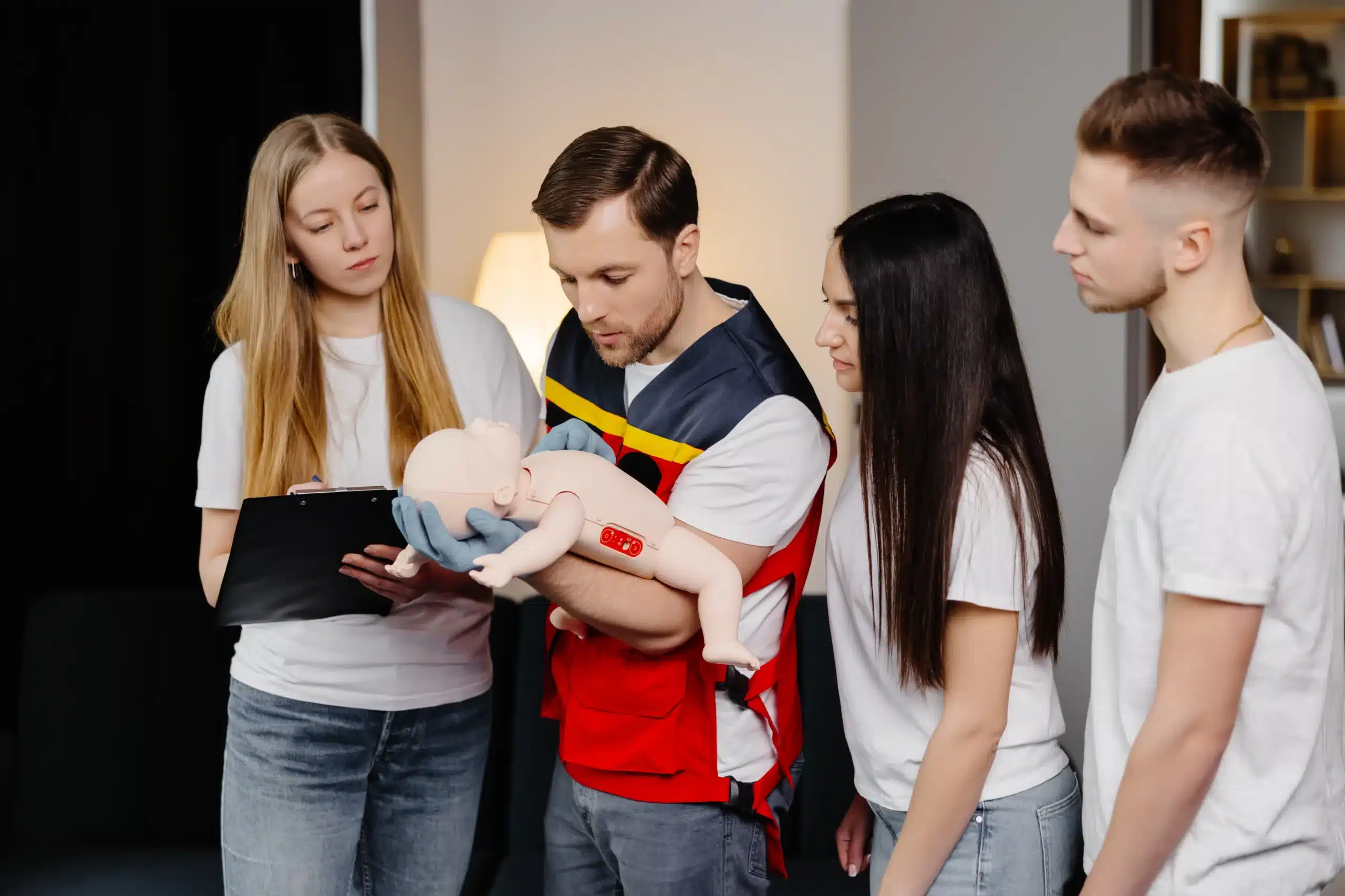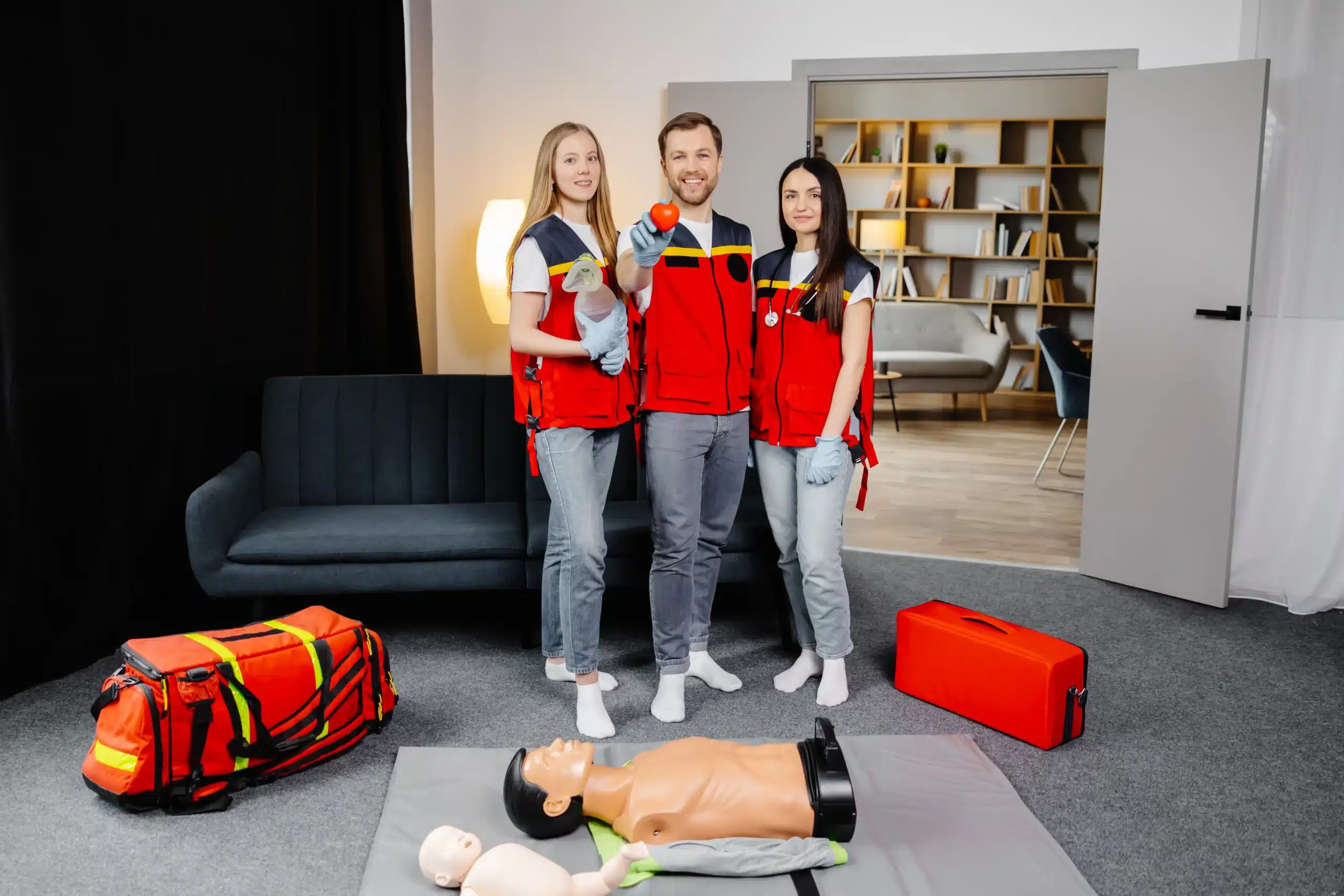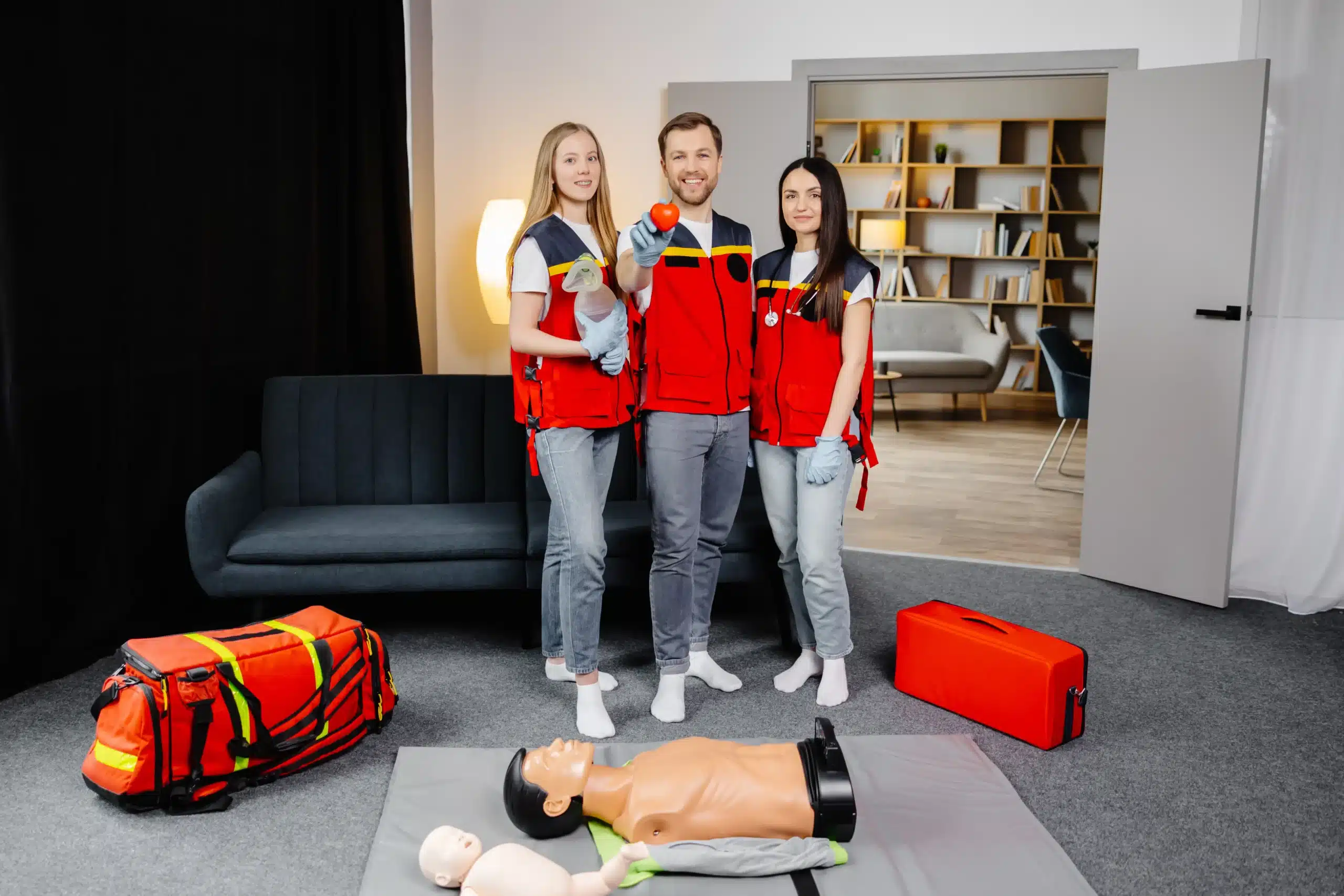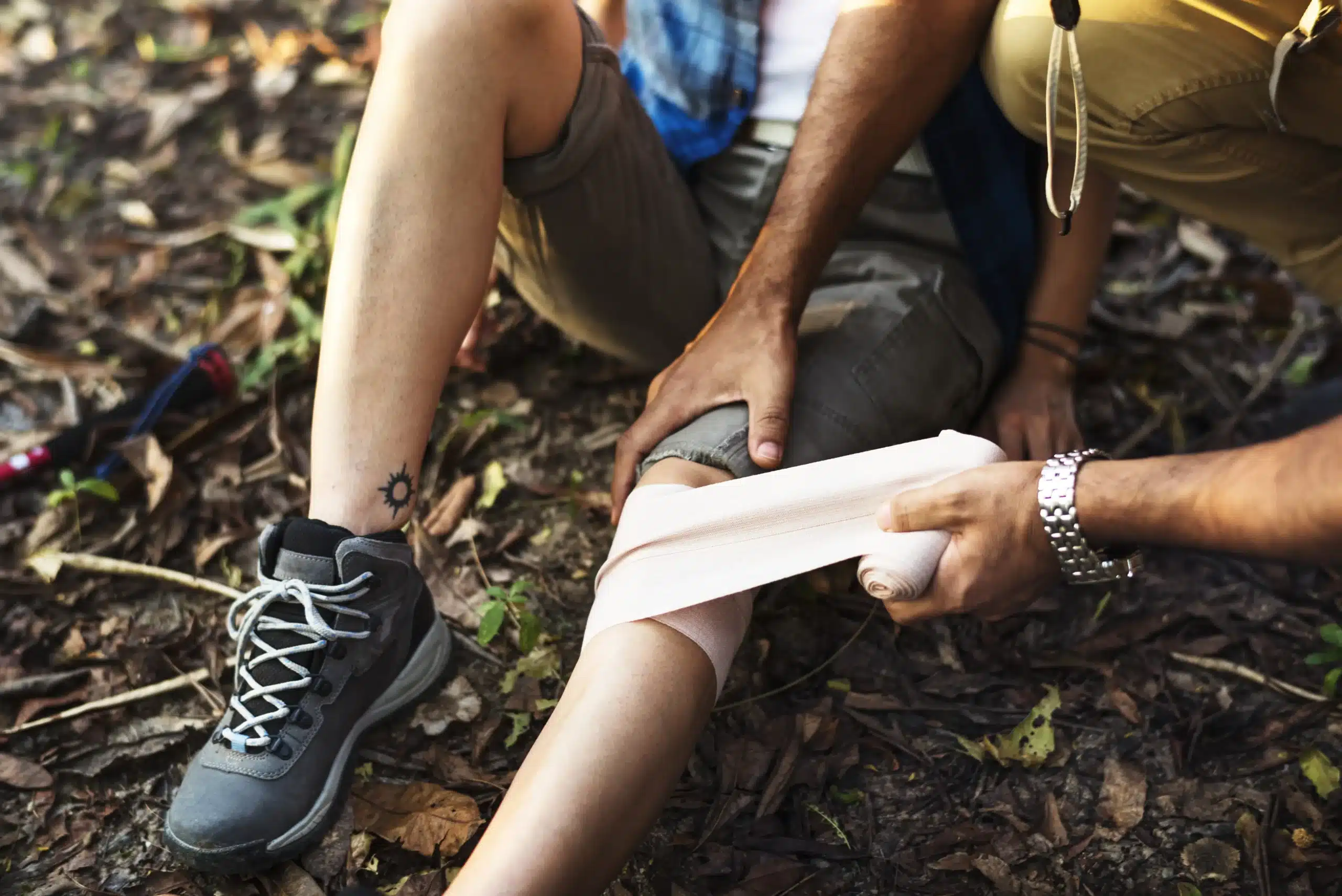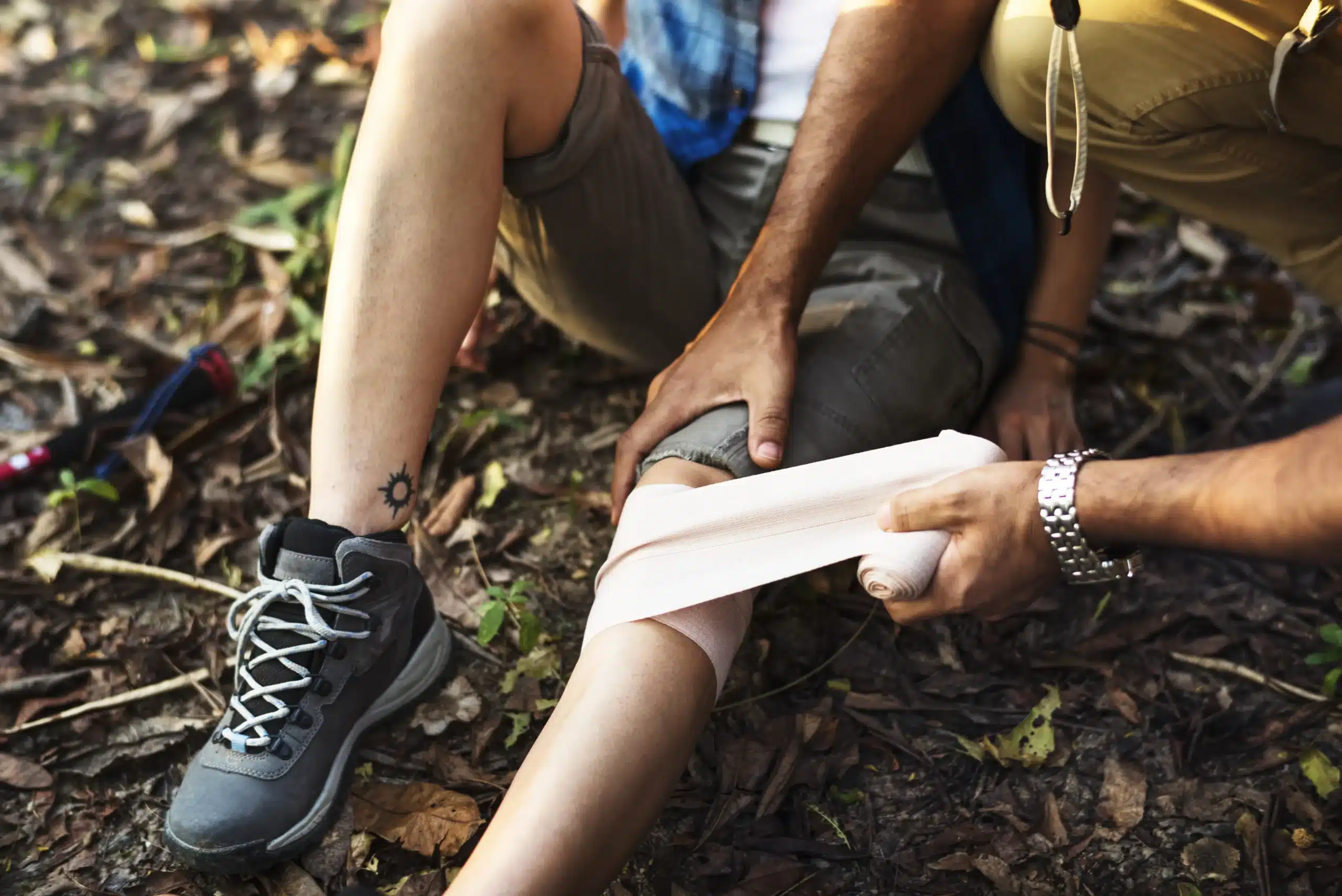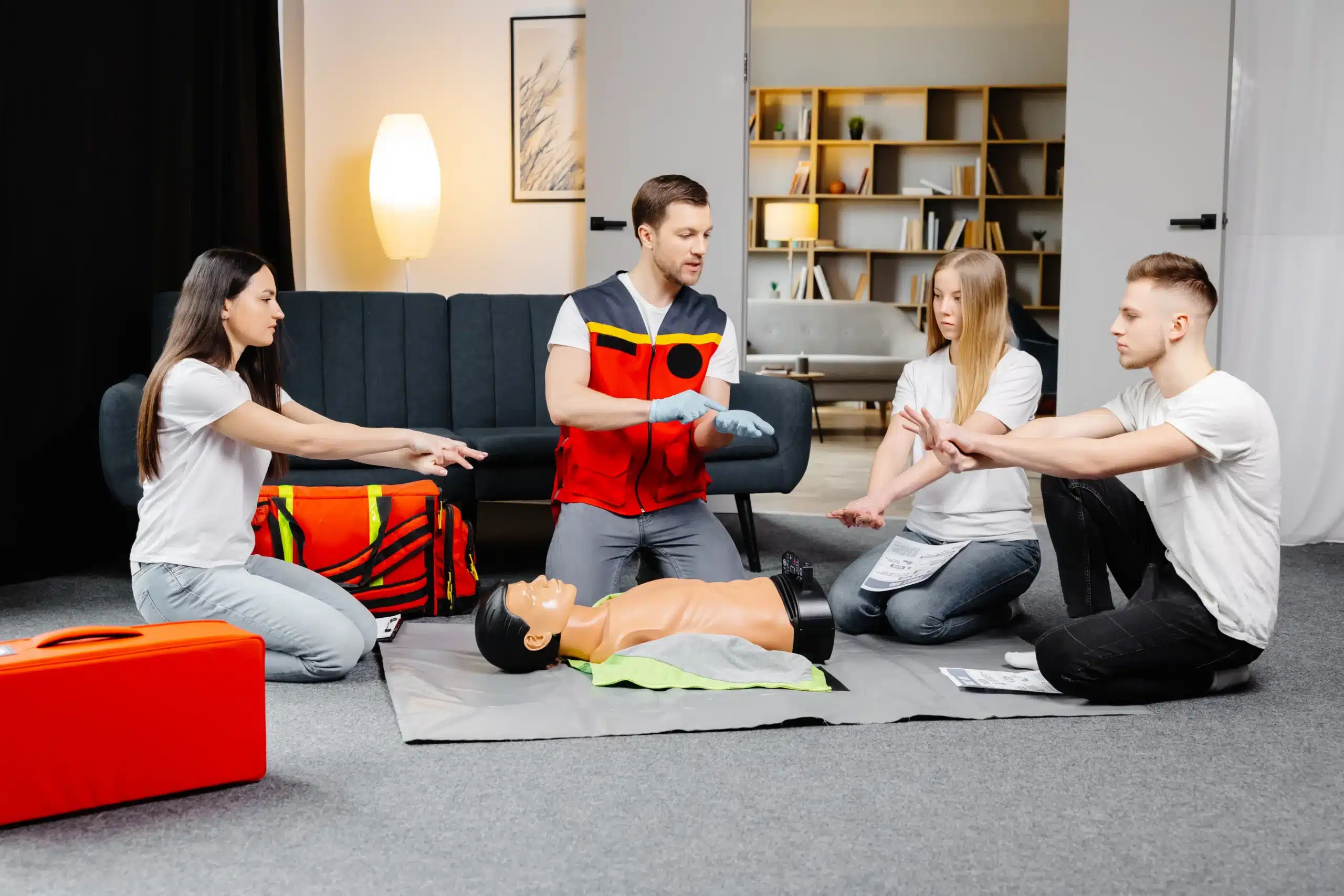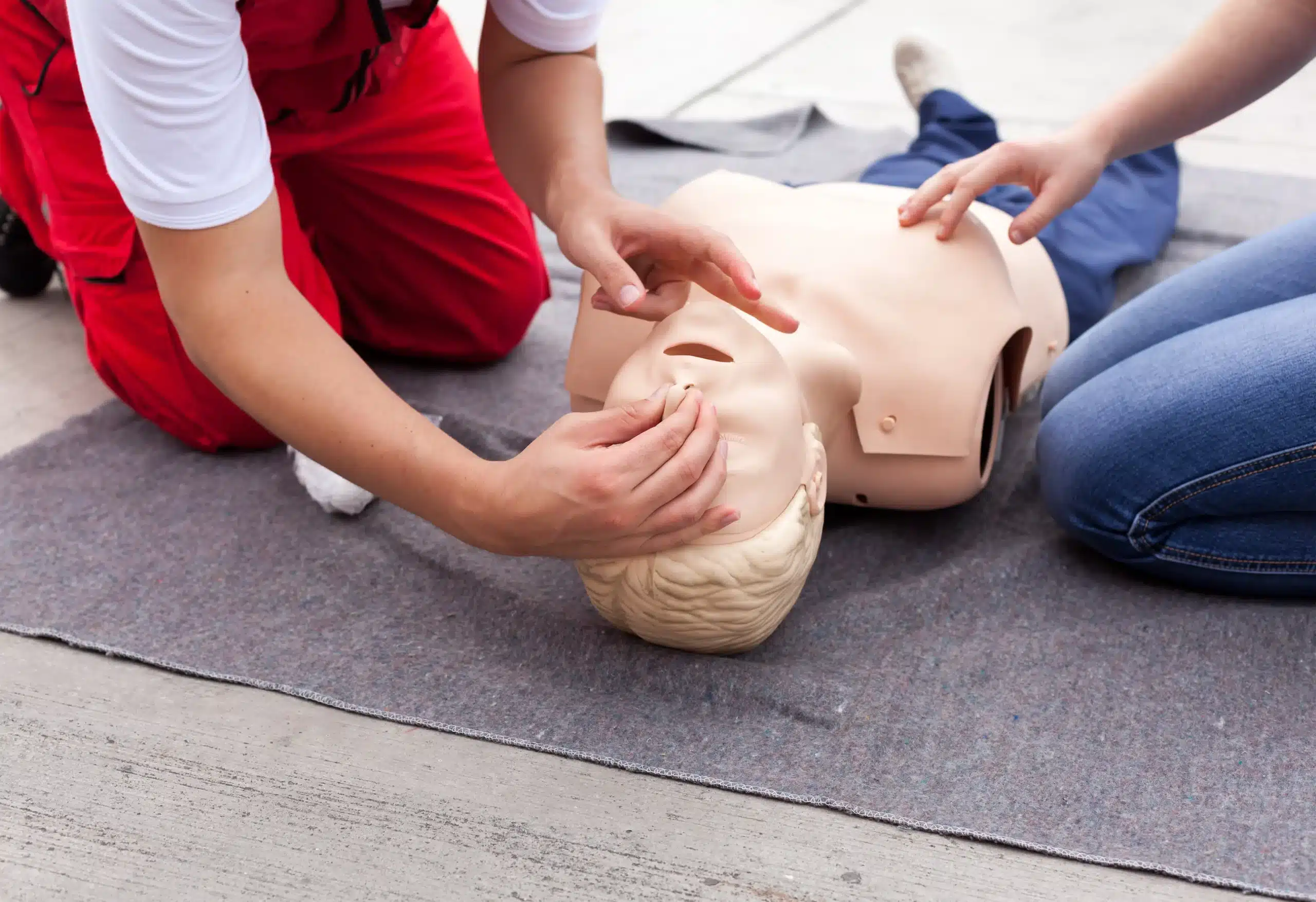Faced with a medical emergency, would you know what to do? Learning CPR can give you the confidence and skills to respond effectively when it matters most. This comprehensive guide explores the world of CPR courses in American Canyon, offering valuable insights into the different types of training available, including BLS, ACLS, PALS, and First Aid. We’ll address common misconceptions about CPR, discuss the importance of hands-on practice, and provide practical tips for choosing the right CPR course and provider. We’ll also delve into course costs, flexible scheduling options, and the differences between online and in-person training. Whether you’re seeking professional certification or simply want to learn a life-saving skill, this guide will help you find the perfect CPR courses in American Canyon to meet your needs.
Key Takeaways
- CPR empowers anyone to save lives: It’s a skill for everyone, not just medical professionals. Find a class that fits your lifestyle.
- Select the right CPR training: Look for qualified instructors, smaller class sizes, and AHA-certified courses for the best learning experience.
- Maintain your CPR skills: Stay current with your certification and refresh your knowledge regularly to confidently respond in emergencies.
What is CPR?
CPR (Cardiopulmonary Resuscitation) is a life-saving technique used in emergencies. It involves chest compressions and rescue breaths to maintain blood circulation and oxygen flow to the brain and other vital organs when someone’s heart has stopped beating. CPR buys precious time until professional medical help arrives. Think of it as a bridge, keeping someone alive until paramedics can provide more advanced care. Learning CPR empowers you to make a real difference in a critical situation.
CPR: Why it Matters
Learning CPR equips you to respond effectively during medical emergencies. It’s a skill that can help you save a loved one, a stranger, or even a first responder. CPR can significantly improve the chances of survival following cardiac arrest, especially when administered immediately.
Debunking CPR Training Myths
Several myths surround CPR training that can prevent people from learning this essential skill. Let’s clear up some common misconceptions:
- Myth 1: CPR Alone Can Restart a Stopped Heart. CPR primarily keeps oxygenated blood flowing. While it can sometimes restart a heart, its main purpose is to maintain vital organ function until advanced medical care arrives. This misconception can lead to delayed action during emergencies.
- Myth 2: CPR is Only for Medical Professionals. Anyone can and should learn CPR. It’s a valuable skill for everyone, regardless of medical background. Check with your local organizations for CPR training courses near you.
- Myth 3: You Might Cause Serious Harm by Performing CPR. While there’s always a small risk of injury during CPR, doing nothing is far more dangerous. Concerns about performing CPR incorrectly shouldn’t deter you from learning this technique. Proper training teaches you how to minimize risks and perform CPR effectively.
- Myth 4: CPR Should Be Done Until the Patient is Revived. CPR should be continued until professional help arrives or the person shows signs of recovery. Current guidelines emphasize the importance of consistent chest compressions.
CPR Courses in American Canyon
Finding the right CPR class can feel overwhelming, but it doesn’t have to be. This section breaks down the different CPR courses offered in American Canyon, helping you choose the best fit for your needs. Whether you’re a healthcare provider, a childcare worker, or simply someone wanting to learn this life-saving skill, there’s a course for you. Safety Training Seminars offers a variety of CPR and first aid training options throughout the week, including weekends, making it easy to find a time that works for you.
Basic Life Support (BLS)
The BLS course provides the foundational knowledge and skills for healthcare professionals and other trained responders. It covers core CPR techniques for adults, children, and infants, along with AED (automated external defibrillator) use and relieving choking. BLS certification is often a job requirement for many healthcare roles. Safety Training Seminars offers American Heart Association BLS certification, ensuring you receive high-quality, nationally recognized training. They offer convenient class locations in and around American Canyon and can also bring the training to your workplace.
Advanced Cardiovascular Life Support (ACLS)
ACLS builds upon the fundamentals of BLS, focusing on advanced life support techniques for adults experiencing cardiac arrest and other cardiovascular emergencies. This course is designed for healthcare professionals who are part of resuscitation teams in hospitals and other clinical settings. Safety Training Seminars offers ACLS courses in American Canyon, providing the training you need to confidently manage complex medical emergencies. They offer competitive pricing and a low-price guarantee.
Pediatric Advanced Life Support (PALS)
The PALS course equips healthcare providers with the specialized knowledge and skills to manage pediatric emergencies. It covers a range of topics, from respiratory distress and shock to cardiac arrest and post-resuscitation care. Safety Training Seminars offers PALS certification in American Canyon, ensuring comprehensive training for healthcare professionals working with children.
First Aid & CPR
Combining First Aid and CPR training provides a well-rounded skill set for responding to various emergencies. You’ll learn how to manage injuries, control bleeding, treat burns, and provide basic life support. This combined course is ideal for anyone who wants to be prepared for both medical emergencies and common injuries.
CPR Course Costs & Schedules
Finding the right CPR class often involves balancing cost, convenience, and the type of training you need. Let’s break down what you can expect when looking at CPR course costs and schedules in American Canyon.
Course Costs: What to Expect
CPR course fees vary depending on the provider and the level of certification. Many providers, like Safety Training Seminars, emphasize competitive pricing and may even offer a low-price guarantee. Knowing that cost is often a factor, it’s helpful to check with different providers like Safety Training Seminars, who advertise their commitment to affordable CPR training in American Canyon.
Discounts & Deals
Looking to save a bit on your training? Many CPR providers offer discounts. For example, Safety Training Seminars often has group discounts, which is perfect if you’re coordinating training for a workplace or a group of friends. Check with providers like Weekend Hero CPR about potential discounts for students, new graduates, and military/veterans, as highlighted in their online reviews. Be sure to ask about potential discounts when you contact a provider.
Flexible Scheduling
Life gets busy, so finding a CPR class that fits your schedule is essential. Many CPR training centers understand this and offer flexible scheduling options. Safety Training Seminars, for instance, offers classes seven days a week, excluding holidays. For even greater flexibility, providers like Weekend Hero CPR sometimes work around client schedules and even offer home visits.
Online vs. In-Person CPR Training
Deciding between online and in-person CPR training depends on your learning style and preferences. Online options, such as those offered by USCPR Online, can provide a convenient and often more affordable way to learn the material. These online CPR classes may be a good option for those looking for flexibility. However, in-person classes offer hands-on practice and direct interaction with an instructor. The American Heart Association offers a variety of training formats, including online and in-person options, so you can choose the best fit for you. Check their website for more information on different course formats and resources.
Your CPR Class: What to Expect
So, you’ve decided to take a CPR class—fantastic! Knowing what to expect can help you feel prepared and confident. Here’s a glimpse into a typical CPR class experience at Safety Training Seminars.
Course Structure & Duration
CPR classes blend instruction with hands-on practice. At Safety Training Seminars, we offer a variety of courses, including American Heart Association BLS, ACLS, and PALS certifications. We can even bring the training to your workplace in American Canyon, or you can visit one of our many training sites throughout Northern California. Depending on the course, classes typically last a few hours. For childcare providers, our EMSA Child Care Health & Safety course covers essential first aid and CPR skills. Healthcare professionals looking to refresh their resuscitation skills can explore our RQI classes.
Hands-on Practice
Learning CPR is a hands-on experience. You’ll practice on training mannequins, getting comfortable with providing chest compressions and rescue breaths. This practical training helps build muscle memory and confidence so you’ll know how to respond effectively in a real emergency.
Certification: Process & Validity
After successfully completing your CPR course, you’ll receive a certification card, typically valid for two years. While some organizations offer free CPR training, these often don’t include a certification. At Safety Training Seminars, we provide affordable certification options so you can confidently demonstrate your qualifications. Maintaining current certification ensures you’re always ready to assist when needed.
Choosing a CPR Provider
Finding the right CPR class can feel overwhelming, but focusing on a few key factors simplifies the process. Think about what’s important to you in a learning environment, and prioritize those aspects as you research different providers.
Instructor Expertise
The instructor’s qualifications are paramount. You want to learn from someone with deep experience and up-to-date knowledge. Look for classes taught by American Heart Association (AHA) certified instructors. Safety Training Seminars, for example, offers AHA-certified instruction for BLS, ACLS, PALS, and CPR courses in American Canyon, ensuring you learn from qualified professionals. This ensures you’re receiving training that meets the highest standards.
Facilities & Equipment
Quality facilities and equipment significantly impact your learning. Hands-on practice is crucial for mastering CPR techniques. Make sure the training provider offers classes with CPR training mannequins so you can develop the muscle memory and confidence to perform compressions effectively. Knowing where and how hard to press makes a real difference in a real-life emergency. For more information on the importance of hands-on training, check out this article on myths about learning CPR.
Class Size & Personal Attention
Consider class size. A smaller class allows for more personalized attention from the instructor. This is especially helpful if you’re nervous about performing CPR correctly or have questions about specific scenarios. A supportive learning environment, where you feel comfortable asking questions and receiving individualized feedback, can boost your confidence. Many people have concerns about performing CPR or providing rescue breaths—a good instructor will address these common anxieties and create a safe space for learning. If you’re looking for more personalized instruction, check out the class size before you register. This article debunks common CPR myths and highlights the importance of a supportive learning environment.
Get Ready for Your CPR Class
Getting ready for your CPR class isn’t just about showing up. A little preparation beforehand can make a big difference in how much you learn and how confident you feel. Here’s how to get prepared:
What to Bring
For most CPR classes, you won’t need much. Comfortable clothing is key, as you’ll be moving around and practicing on mannequins. A small notebook and pen can be helpful for jotting down notes, though many courses provide materials. If you have any specific physical limitations or require accommodations, it’s always a good idea to contact Safety Training Seminars in advance so they can make sure you’re comfortable.
Pre-Course Prep
Before your class, take a few minutes to familiarize yourself with basic CPR concepts. The American Red Cross website offers a helpful overview. This isn’t about becoming an expert overnight, but simply getting a basic understanding of what CPR entails. Knowing a little beforehand can help you absorb the information more effectively during the actual training. Also, review any course materials provided by Safety Training Seminars. This will give you a head start and allow you to focus on the hands-on practice during class.
Physical & Mental Prep
CPR training involves physical activity, primarily chest compressions. While you don’t need to be a marathon runner, being aware of any physical limitations you might have is helpful. If you have back problems, for example, let your instructor know. They can offer modifications or suggestions to make the training more comfortable. Just as important is mental preparation. CPR can be intense, and it’s natural to feel a little apprehensive, especially if you’re learning it for the first time. Remember that everyone in the class is there to learn, and the instructors at Safety Training Seminars are experienced in creating a supportive learning environment. Focus on the fact that you’re gaining a valuable skill that could potentially save a life.
Renew Your CPR Certification
Keeping your CPR skills current is essential for effective emergency response. This section outlines how to renew your CPR certification in American Canyon.
Renewal Requirements
CPR certifications generally expire after two years. To maintain your credentials, you must take a renewal course before your current certification lapses. Organizations like the American Heart Association (AHA) offer frequent CPR, BLS, ACLS, and PALS renewal courses, making scheduling convenient. Contact your preferred provider, such as Safety Training Seminars, for specific renewal procedures and course availability. They can guide you through the process and help you find the right class.
Continuing Education
Beyond renewing your certification, the AHA offers continuing education (CE) credits for some CPR and Emergency Cardiovascular Care (ECC) courses. These credits can be beneficial for healthcare professionals and anyone seeking to expand their skillset. Visit the AHA website for details on eligible courses and the advantages of earning CE credits. This can be a great way to stay up-to-date on the latest techniques and best practices in CPR.
CPR Providers in American Canyon
Finding the right CPR training can feel overwhelming, but several excellent providers serve the American Canyon area. Here’s a rundown to help you find the best fit.
Safety Training Seminars
If you’re looking for comprehensive training and excellent value, Safety Training Seminars is a great option. They offer a wide range of American Heart Association (AHA) certified courses, including BLS, ACLS, PALS, and First Aid. They pride themselves on convenient scheduling and competitive pricing.
American Red Cross
While the American Red Cross doesn’t have a training center in American Canyon, they offer courses in nearby Los Angeles. Their CPR/AED classes come in various formats, including in-person, online, and blended learning, offering flexibility. This might be a good choice if you prefer the Red Cross’s established curriculum.
American Heart Association Training Centers
The American Heart Association website is a valuable resource for understanding different CPR certifications and finding authorized training centers near you. This is a good starting point if you’re unsure which type of CPR training you need.
Debbie’s CPR
For a more personalized experience, consider Debbie’s CPR in nearby Fairfield. Debbie offers AHA-certified CPR and First Aid courses in a small, relaxed setting. She also offers private group classes, ideal for workplaces or community groups in American Canyon seeking tailored training.
WEEKEND HERO CPR
Located in American Canyon, WEEKEND HERO CPR offers various CPR and First Aid certifications, including BLS, ACLS, and PALS. They emphasize flexible scheduling, so contact them directly to find a class time that works for you.
CPR Training Benefits
Learning CPR offers advantages that extend beyond the practical skill itself. It equips you with the confidence to respond effectively in emergencies, fulfills professional requirements in many fields, and contributes to a safer community for everyone.
Personal Growth
CPR training empowers you to take action during medical emergencies. Understanding CPR dispels common misconceptions, replacing hesitation with the confidence to provide immediate assistance. This knowledge can be profoundly empowering, transforming you from a bystander into a potential lifesaver. It builds your critical thinking skills and reduces fear in the face of emergencies, allowing you to respond effectively when every second counts. Knowing you possess these skills can significantly reduce anxiety and increase your sense of personal preparedness.
Professional Requirements
Many professions, especially in healthcare, require CPR certification. The American Heart Association (AHA) offers a range of CPR and Emergency Cardiovascular Care (ECC) courses designed to meet these professional standards. Some AHA courses even provide continuing education credits, allowing professionals to maintain their certifications while simultaneously advancing their careers. Whether you’re a medical professional, a teacher, or work in a field that mandates safety training, obtaining and maintaining your CPR certification demonstrates your commitment to providing a safe environment.
Community Impact
Learning CPR has a ripple effect, making your community safer. When more people are trained, the likelihood of someone receiving timely CPR during a cardiac arrest increases. This can significantly improve survival rates and minimize the long-term consequences of cardiac events. Debunking CPR myths within your community encourages more people to seek training, creating a network of prepared individuals ready to respond to emergencies. By becoming CPR certified, you contribute to a more resilient and prepared community, where more people have the skills to save lives.
CPR Course Feedback & Improvements
We’re always working to make our CPR courses the best they can be, and student feedback is essential to that process. It helps us understand our strengths and identify areas for growth.
Testimonials
We love hearing from our students! Many appreciate the convenient and efficient format of our classes, highlighting the friendly and knowledgeable instructors. The flexible scheduling options also make it easier to fit training into busy schedules. Check out sites like Yelp to see what other students are saying. The option to complete CPR and First Aid training from home is a popular choice for those seeking a comfortable and convenient learning experience.
Updated Training Methods
We keep our training aligned with the latest guidelines and techniques from organizations like the American Heart Association. We offer AHA-certified courses in CPR, BLS, ACLS, PALS, and First Aid, ensuring high-quality, recognized training. Accessibility and affordability are also key priorities. We’ve also implemented enhanced hygiene practices and equipment decontamination, so you can feel safe and confident during your training. The American Heart Association offers more information on updated training methods.
Addressing Participant Feedback
Your feedback helps us address common misconceptions surrounding CPR. These misunderstandings can sometimes prevent people from acting in emergencies. We’re committed to empowering everyone to respond confidently in such situations. We recommend exploring resources that clarify common CPR myths and offer accurate information. A clear understanding of these myths builds confidence and effectiveness for real-life emergencies. Your feedback plays a vital role in refining our courses and ensuring the best possible learning experience.
Related Articles
- CPR Myths: Debunked 10 Facts Everyone Should Know
- Why CPR Is Important in Healthcare
- BLS Certification in American Canyon: Your Complete Guide – Napa CPR Classes
- ACLS Renewal in Napa: Your Complete Guide – Napa CPR Classes
- CPR Training in Napa: Your Complete Guide – Napa CPR Classes
Frequently Asked Questions
What’s the difference between BLS and CPR? CPR is the core life-saving technique involving chest compressions and rescue breaths. BLS (Basic Life Support) encompasses CPR but also includes other skills like using an AED and relieving choking. Think of CPR as one piece of the larger BLS puzzle.
How do I choose the right CPR class for me? Consider your specific needs. Are you a healthcare provider, a childcare worker, or someone wanting general knowledge? Healthcare professionals often need BLS or ACLS, while others might find a combined First Aid/CPR course more suitable. Also, think about scheduling and cost. Safety Training Seminars offers various options to fit different budgets and schedules.
What if I’m nervous about performing CPR? It’s completely normal to feel a bit apprehensive. Remember, CPR instructors create supportive learning environments. Hands-on practice with mannequins helps build confidence and muscle memory, so you’ll know what to do in a real emergency. Don’t hesitate to ask your instructor any questions you have – they’re there to help you feel prepared.
How often do I need to renew my CPR certification? CPR certifications are typically valid for two years. Check with your certifying organization (like the American Heart Association) for specific renewal requirements. Safety Training Seminars offers renewal courses to help you keep your skills current.
Are online CPR courses as good as in-person classes? Both online and in-person CPR courses have their advantages. Online courses offer flexibility, while in-person training provides hands-on practice and direct interaction with an instructor. The best choice depends on your learning style and preferences. If you learn best by doing, an in-person class might be a better fit.
